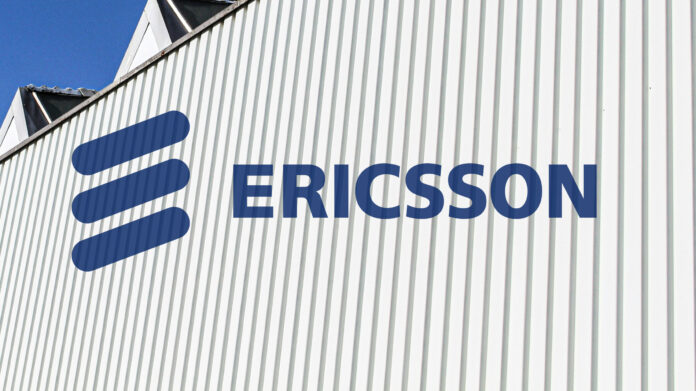In a briefing room at MWC in Barcelona at the end of February, when presented with the idea that, for all its successes with the mobile operator crowd, Nokia is running away with it in the enterprise space, Ericsson responded by saying something about it being “half time in the 5G game”, and that nothing is decided or won – and that time is on its side. Which is probably correct; standalone 5G (5G SA) is only just replacing derivative non-standalone (NSA) technology in mobile networks, and the Swedish vendor’s run of big ‘six-pointers’ in the traditional carrier market count for rather more in bottom-line statistics than its old rival’s hyperactive Industry 4.0 deployments.
But the grand promise of 5G, expanding with every new 5G SA release, is really (mostly / arguably) about the digital transformation of enterprises, rendered most potent when deployed in a tailored private architecture with choice edge computing and applications. So in ways, while Ericsson has played a blinder so far to shore up its position as a vendor of large-scale general-purpose 5G gear on the global stage, Nokia has also turned heads with its tika-taka supply of bespoke cellular into smaller enterprise venues. Certainly, the sense is, and the numbers say, that the Finnish firm has outflanked Ericsson along the margins, at the edge, with enterprises.
But Ericsson’s response at MWC (which will be weaved into an article one day) also presented a degree of calm about its second-half prospects in this developing contest, and a forceful reminder of its Industry 4.0 credentials as a native of the land of Skanska, Volvo, and IKEA etc; indeed, there was an arrogance, almost Apple-like, that implied it’s not how you start, but how you finish, and that the firm will move on Industry 4.0 when Industry 4.0 is ready for 5G. And there are signs, at last, that Ericsson thinks the time is right. Something is afoot, anyway, as it cited “good customer demand for private cellular” in the second quarter and a reworked private 5G division, and signposted a post-summer reveal-all.
In the quarter, the firm’s overall sales fell seven percent, and sharper actually in most territories (Europe, Asia, Latin America), compared with a year ago, but rallied 14 percent higher in the US – where it has taken share directly from Nokia with AT&T. The company’s stock finished higher last week, just because analysts thought Ericsson’s sales were less. The problem with the public 5G market, of course, is mobile operators are struggling to ‘monetise’ their investments in 5G infrastructure. “We’re facing a tough market environment,” declared Ericsson president and chief executive Börje Ekholm. Meanwhile, monetisation is scrappier in the private 5G market, but also probably surer.
The firm’s enterprise business, headed by Åsa Tamsons since George Mulhern’s retirement in January, made SEK1.2 billion in the second quarter, which is 23 percent higher than both a year ago and a quarter ago (both SEK1 billion). There is not much more detail on its accounts; it added simply that it returned a gross margin figure in the period of 59.5 percent, showing negligible change with the second quarter of 2023 (57.2 percent) and the first quarter of 2024 (58.2 percent). It stated: “Sales growth in ‘enterprise wireless solutions’ and ‘technologies and new businesses’ was offset by lower sales (and higher operating expenses) in global communications platform.”
There is no detail, for example, on how many private 4G/5G networks Ericsson has deployed, in the quarter or in total; nor a rough breakdown of its channel activity, about whether its private networking equipment is being sold mostly by mobile operators’ enterprise divisions, as it always promised, or by system integrators of various sorts. A spokesperson said: “Private networks sales are growing strongly with many proofs (PoCs) from the last couple of years growing into complete installations and expanding throughout the organisation. We don’t separate out sales numbers for public consumption so I can not elaborate further than what was in the earnings report.”
But Ericsson has revealed that its US-based private-networks subsidiary Cradlepoint, acquired in late 2020, has now been properly integrated into its enterprise division. “[The] enterprise wireless [division] has recently undergone a transformation [with] both employee-sets from Ericsson’s private 5G [team] and Cradlepoint [merged] into one organisation,” it said. The company rejected rumours in the market that certain senior positions have been axed in the process. “This is not accurate… We have had a few executives voluntarily decide to retire. We still have a strong set of leaders from Cradlepoint and new leaders that are prepared to support our expansion,” it said.
The Cradlepoint assimilation includes the integration of cloud enterprise security firm Ericom, acquired a year ago to slot into the Cradlepoint offer. Writing on social media after a sales summit and leadership forum in Boise, Idaho, last week, Tamons said: “One of the biggest things we celebrated this week was the convergence of Ericsson, Cradlepoint, and Ericom… Together we’re creating a powerhouse team that will create the leading enterprise wireless networking platform. There’s lots of opportunity ahead, and I am excited to see our teams breaking barriers and delivering world-class experiences for our customers and partners through our innovative wireless solutions.”
Tamons is set to provide an official update on Ericsson’s private 5G strategy on September 12. To be fair, since the start of 2024, Ericsson appears to have upped its marketing game in the private 5G space, issuing announcements about a flurry of deals and deployments – mostly in the US, including with shipping port Tacoma Tideflats, engine manufacturer Cummins, broadcast company Trinity Broadcasting Network, and energy utility Tampa Electric, but also more widely with the likes of Swedish machine maker Atlas Copco, French electricity company EDF, UAE mobile operator du, and the Spain-based interests of operator Vodafone.

